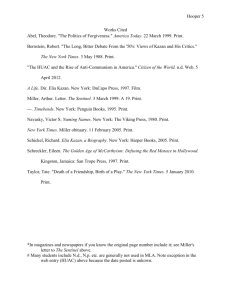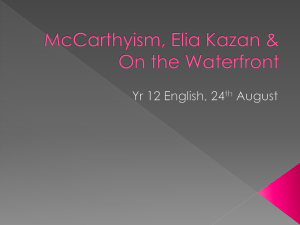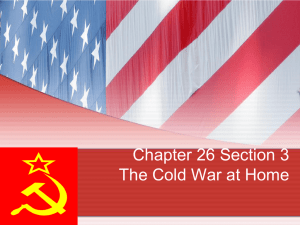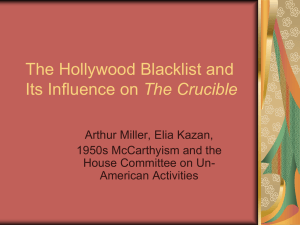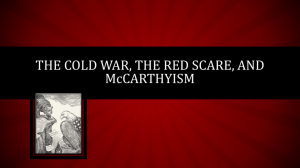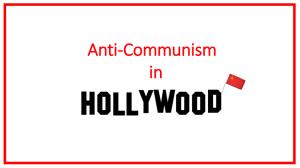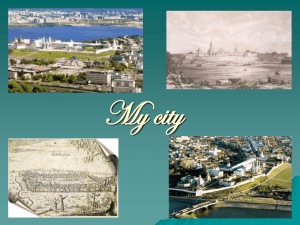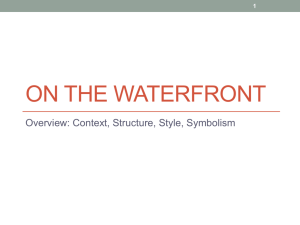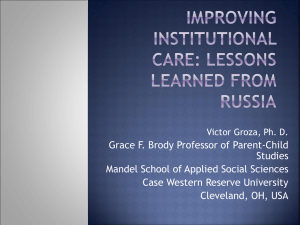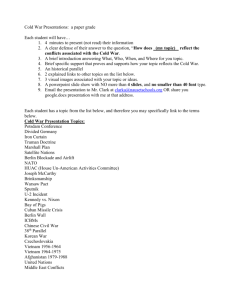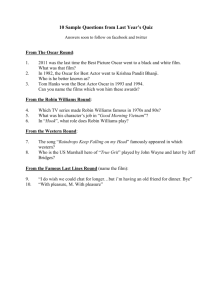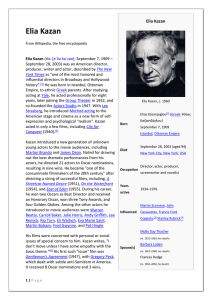Hollywood and the Cold War, part 3 Term Sheet
advertisement
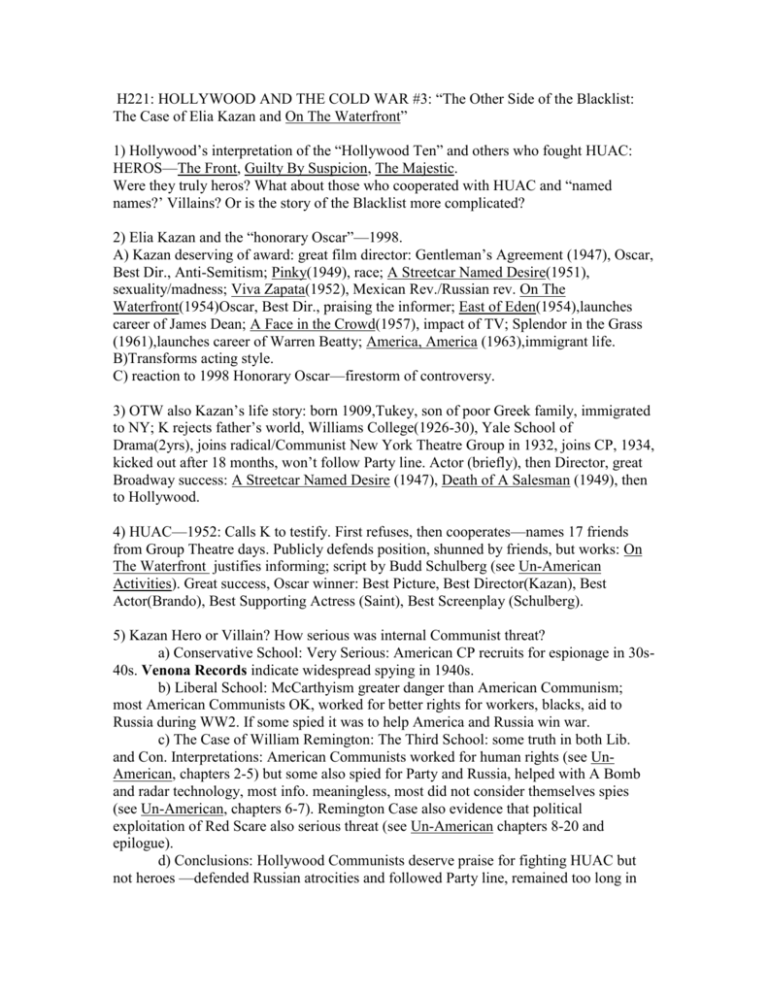
H221: HOLLYWOOD AND THE COLD WAR #3: “The Other Side of the Blacklist: The Case of Elia Kazan and On The Waterfront” 1) Hollywood’s interpretation of the “Hollywood Ten” and others who fought HUAC: HEROS—The Front, Guilty By Suspicion, The Majestic. Were they truly heros? What about those who cooperated with HUAC and “named names?’ Villains? Or is the story of the Blacklist more complicated? 2) Elia Kazan and the “honorary Oscar”—1998. A) Kazan deserving of award: great film director: Gentleman’s Agreement (1947), Oscar, Best Dir., Anti-Semitism; Pinky(1949), race; A Streetcar Named Desire(1951), sexuality/madness; Viva Zapata(1952), Mexican Rev./Russian rev. On The Waterfront(1954)Oscar, Best Dir., praising the informer; East of Eden(1954),launches career of James Dean; A Face in the Crowd(1957), impact of TV; Splendor in the Grass (1961),launches career of Warren Beatty; America, America (1963),immigrant life. B)Transforms acting style. C) reaction to 1998 Honorary Oscar—firestorm of controversy. 3) OTW also Kazan’s life story: born 1909,Tukey, son of poor Greek family, immigrated to NY; K rejects father’s world, Williams College(1926-30), Yale School of Drama(2yrs), joins radical/Communist New York Theatre Group in 1932, joins CP, 1934, kicked out after 18 months, won’t follow Party line. Actor (briefly), then Director, great Broadway success: A Streetcar Named Desire (1947), Death of A Salesman (1949), then to Hollywood. 4) HUAC—1952: Calls K to testify. First refuses, then cooperates—names 17 friends from Group Theatre days. Publicly defends position, shunned by friends, but works: On The Waterfront justifies informing; script by Budd Schulberg (see Un-American Activities). Great success, Oscar winner: Best Picture, Best Director(Kazan), Best Actor(Brando), Best Supporting Actress (Saint), Best Screenplay (Schulberg). 5) Kazan Hero or Villain? How serious was internal Communist threat? a) Conservative School: Very Serious: American CP recruits for espionage in 30s40s. Venona Records indicate widespread spying in 1940s. b) Liberal School: McCarthyism greater danger than American Communism; most American Communists OK, worked for better rights for workers, blacks, aid to Russia during WW2. If some spied it was to help America and Russia win war. c) The Case of William Remington: The Third School: some truth in both Lib. and Con. Interpretations: American Communists worked for human rights (see UnAmerican, chapters 2-5) but some also spied for Party and Russia, helped with A Bomb and radar technology, most info. meaningless, most did not consider themselves spies (see Un-American, chapters 6-7). Remington Case also evidence that political exploitation of Red Scare also serious threat (see Un-American chapters 8-20 and epilogue). d) Conclusions: Hollywood Communists deserve praise for fighting HUAC but not heroes —defended Russian atrocities and followed Party line, remained too long in Party, should have been true to personal artistic vision. BUT: didn’t deserve their fate— jail and unemployment. Those who cooperated should have denounced both Party and HUAC. Trumbo: No heroes, no villains, only victims. 6) Blacklist Ends: 1960—Kirk Douglas hires Dalton Trumbo to write Spartacus , 1971: Ring Lardner, Jr. wins Oscar for writing M.A.S.H. But most blacklisted writers, actors, actresses, lost careers forever. On the Waterfront (1954) Directed by Elia Kazan Writing credits Malcolm Johnson (articles) Budd Schulberg (also story) Marlon Brando.... Karl Malden.... Lee J. Cobb.... Rod Steiger.... Eva Marie Saint.... Pat Henning.... Leif Erickson.... James Westerfield.... Tony Galento.... Tami Mauriello.... John F. Hamilton.... John Heldabrand.... Rudy Bond.... Don Blackman.... Arthur Keegan.... Abe Simon.... Terry Malloy Father Barry Johnny Friendly Charley Malloy/ Edie Doyle Timothy J. 'Kayo' Dugan Glover, Crime Commission Big Mac (Pier Boss) Truck (Goon) Tullio (Goon) 'Pop' Doyle (as John Hamilton) Mutt, drunk pan-handler Moose, sympathetic Luke, sympathetic Negro Jimmy, kid with pigeons Barney (Goon)
